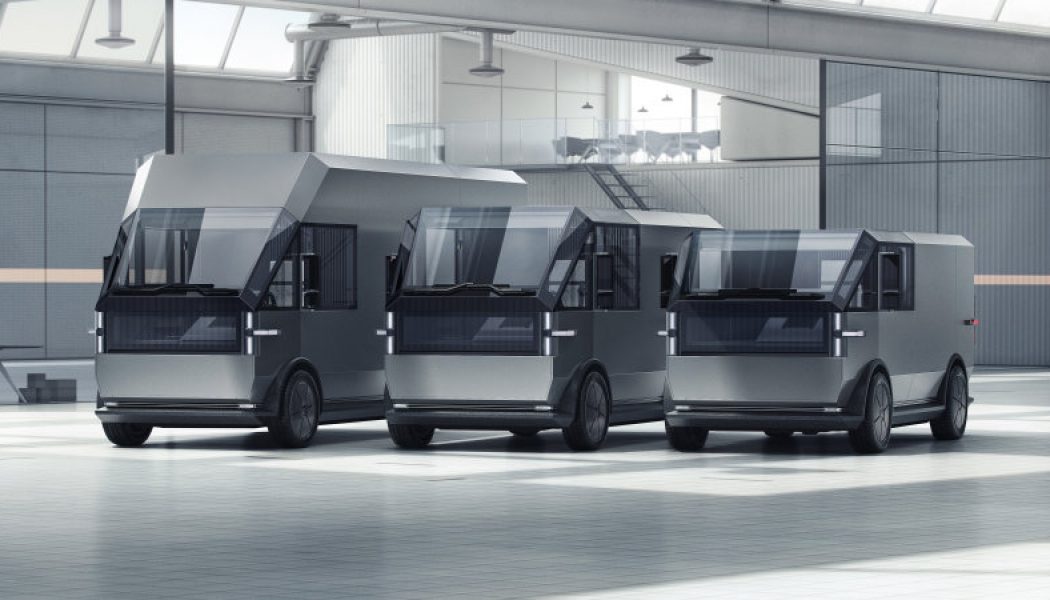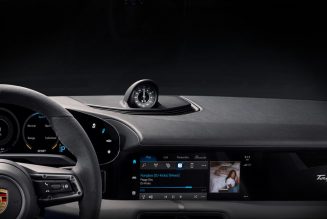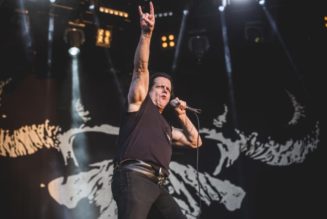The folks responsible for the Canoo EV, the Los Angeles-based firm whose stated aim is to free customers from the shackles of vehicle ownership, are now hard at work on an electric multi-purpose delivery van aimed at dramatically lowering the total cost of operation for small businesses, last-mile delivery companies, independent contractors, utilities, service technicians, and more. Behold the 2024 Canoo MPDV1 and MPDV2.
Both will be based on the same flat and low skateboard chassis that underpins the Canoo EV (like that vehicle, the wheelbases of the MPDV1 and MPDV2 measure in at 112.2 inches). It employs a steel frame and a low-profile control-arm-type suspension with transverse leaf springs front and rear. Steering and braking are both “by wire,” and the vehicle features full connectivity, enabling data-reporting capabilities, over-the-air updates, and centralized fleet management. The vans are also said to support “level 2.5” autonomy, which supposedly approximates Tesla’s Autopilot capabilities. Steer-by-wire is credited with improving maneuverability by eliminating hand-over-hand driving, as well as improving the driver’s range of motion and route options.
2024 Canoo MPDV1 and MPDV2: Room for Paddles
Where the Canoo EV features a rounded Volkswagen Microbus-aping monospace design, the vans square everything up for maximum interior space and eliminates most of the EV’s doors. Overall dimensions of the smaller MPDV1 measure fairly close to those of the shared, subscription-model, civilian-use Canoo. Relative to the existing fleet of combustion-powered urban vans (Ford Transit Connect and Ram ProMaster City), the Canoo measures wider by 4.8 to 8.8 inches and taller by 0.4 to 2.4 inches. It is, however, shorter in length by 1.2 to 15.2 inches. The MPDV1’s tidy dimensions suit it well for use in dense urban areas, as its low height allows it to easily clear the height limits of typical city parking garages.
The larger MPDV2 model gets a higher roof that provides a comfortable 78-inch interior standing height (nearly 10 inches more than the MPDV1). Relative to smaller versions of vans like the Chevrolet Express, Ford Transit, and Ram ProMaster, the MPDV2’s wheelbase is 5.2-22.2 inches shorter, its body is 5.4 to 7.2 inches wider, and its height measures 18.8 inches taller than that of the single-roof Chevy Express (and its GMC Savana counterpart). This Canoo van will likely face some competition from the forthcoming Mercedes-Benz E-Sprinter and Ford E-Transit.
Both multi-purpose delivery vans are considered Class 1 vehicles and hence must meet all passenger-car crash and safety standards. A third version (guesses on the name?) will follow, enlarged to Class 3 dimensions.
2024 Canoo MPDV1 and MPDV2: Current Situation
Initial production of MPDV1 and MPDV2 will feature front-drive single-motor construction, but the chassis is package-protected for an eventual second motor at the rear axle, giving these vans all-wheel-drive capability. The permanent-magnet motor produces 200 hp and 236 lb-ft of torque, which is routed through a single-speed reduction-drive transaxle. For now, three battery capacities are envisioned, providing 40, 60, or 80 kWh. Canoo estimates range for the MPDV1 at 130, 190, or 230 miles, which drops to 90, 140, and 190 miles in the larger MPDV2. These packs all use 21/700 cylindrical lithium-ion cells with liquid cooling.
All will feature a bi-directional charger capable of exporting 125- or 240-volt AC power for tools and equipment. The 80-kWh versions will come with DC fast-charging capability that can take the battery pack from 20 to 80 percent charge in just 28 minutes.
By ditching the left-front door, drivers can mount a laptop or other devices to their left for recording deliveries, tracking jobs, etc. The main access door is on the right and photos show a pair of rear barn doors. Canoo offers large customers the option to co-develop a custom vehicle to meet their specific requirements, rather than relying on upfitters. Customization examples noted in the press release are mostly focused on ergonomics and productivity: storage lockers, a roll-up style cargo door, ramp slide outs, and more.
Some of Canoo’s more impressive claims for its vans include 30 percent more parcel volume than delivery vans in comparable segments, and—for multi-purpose delivery vehicle customers—a boost in return on capital over six to seven years of between $50,000 and $80,000.
2024 Canoo MPDV1 and MPDV2: Cash Flow
Canoo sees demand for EV light commercial vehicles growing by 33 percent annually in the United States and Europe through 2028. And while Rivian, Bollinger, and others have announced delivery vans, Canoo believes its smaller Class 1 vans will fulfill a niche that is currently underserved. Although the Azure Dynamics Ford Transit Connect van failed in its attempt to serve the electric urban delivery van market a decade ago, its design was severely compromised by its combustion vehicle roots, so the purpose-built Canoo MPDV’s chances look better—providing the company surmounts the numerous hurdles facing any start-up vehicle manufacturer.
A limited fleet of test vehicles will enter service in 2022, with full-scale production ramping up in 2023. Sales and service networks will be announced between now and then. Interested customers can pre-order the Canoo MPDV for a refundable deposit of $100 per vehicle.









